Few things are more frustrating for an investor than a botched 1031 exchange. Mistakes and timeline delays could force them to pay the capital gains tax, which takes a bite out of their profits and impacts their ability to reinvest in the community. With thousands of dollars in savings on the line, partnering with the right qualified intermediary is a top priority. But what qualities should you look for when partnering with one? Learn more about the role of a 1031 exchange consultant and the characteristics they should have.
What Does a 1031 Qualified Intermediary Do?
A 1031 qualified intermediary is an independent third party who facilitates the exchange on behalf of the taxpayer, ensuring compliance with the stringent IRS regulations. Here are some of the responsibilities they help with throughout the process:
Escrow and Funds Safekeeping
One of the primary functions of a 1031 exchange advisor is to receive and hold the proceeds from the sale of your relinquished property in a secure, segregated account. This step is essential to comply with the IRS regulations that require the taxpayer to have no actual or constructive receipt of the funds during the exchange. The QI acts as a neutral party, safeguarding the funds until they are used to acquire the replacement property.
Identifying Potential Replacement Properties
Within 45 days of selling the relinquished property, the taxpayer must identify potential replacement properties. A 1031 qualified intermediary assists in this process by providing guidance on the identification rules and ensuring compliance with the strict timelines set by the IRS. They play a vital role in documenting and reporting the identified properties to avoid potential disqualifications.
Document Preparation and Compliance
Navigating the paperwork involved in a 1031 exchange can be complex and overwhelming. A qualified intermediary helps prepare the necessary exchange documents, including the exchange agreement, assignment of the contract, and other relevant paperwork. They ensure compliance with the strict IRS regulations and work closely with the taxpayer and other parties involved, such as real estate agents, attorneys, and title companies, to streamline the exchange process.
Closing Coordination
As the exchange nears its completion, a 1031 qualified intermediary coordinates with the closing agents involved in both the sale of the relinquished property and the acquisition of the replacement property. They facilitate the seamless transfer of funds, ensuring the proper execution of documents and adherence to the exchange timeline.
What To Look for in a 1031 Exchange Advisor?
Choosing the right 1031 exchange consultant, or qualified intermediary, is critical to the success of your exchange. An inexperienced or unqualified intermediary may cause significant delays or make mistakes that could invalidate the exchange. To avoid potential pitfalls, consider the following qualities when selecting your advisor:
Experience
Look for a qualified intermediary with a proven track record and substantial experience in facilitating 1031 exchanges. An experienced advisor will have in-depth knowledge of the exchange process, potential challenges, and strategies to overcome them. Also, they should have the right professional accolades, including being a certified FINRA advisor. They can navigate complex situations with ease, providing valuable guidance tailored to your specific needs.
Knowledgeable about Rules and Regulations
The IRS imposes strict rules and regulations governing 1031 exchanges, and it’s crucial that your advisor possesses a comprehensive understanding of these guidelines. They should stay up to date with any changes in tax laws and regulations that may impact your exchange. A knowledgeable intermediary will help you navigate potential pitfalls, ensuring compliance and minimizing the risk of mistakes that could jeopardize the exchange.
Detail Oriented
The success of a 1031 exchange often lies in the details. A 1031 exchange consultant must be detail-oriented, meticulous, and have a strong attention to detail. They should carefully review all exchange documents, identify any potential errors or discrepancies, and communicate with the relevant parties to rectify them promptly. By ensuring accuracy and thoroughness, they mitigate the risk of costly mistakes that could have adverse tax implications.
Strong Communication Skills
Effective communication is vital throughout the 1031 exchange process. Your qualified intermediary should be responsive, proactive, and able to explain complex concepts in a way that is easy to understand. They should provide regular updates on the progress of the exchange, promptly address any concerns or questions you may have, and maintain open lines of communication with all parties involved.
When Should You Hire a 1031 Exchange Advisor
With strict timelines and concrete rules that must be followed, it’s important to begin working with a 1031 exchange advisor as soon as possible. This means contacting and retaining the services of one before relinquishing the existing property. Engaging with a qualified intermediary from the beginning provides peace of mind that all guidelines are followed throughout the process.
Are you unsure if you need to work with a 1031 qualified intermediary or a facilitator? Check out our latest blog about the different roles they have and make the right decision for your exchange.
Why Work With Our 1031 Exchange Advisors?
When it comes to finding a qualified intermediary, would you rather work with someone who occasionally executes an exchange or an expert who specializes in that strategy? Partnering with 1031 Exchange Intermediaries means you’re working with an expert who only works on 1031 exchanges. Investors across the country love working with us because we’re:
Experienced
Our team has over three decades of experience working on 1031 exchanges. The knowledge our experts have allows them to create a streamlined process that facilities your exchange.
Knowledgeable
Partnering with 1031 Exchange Intermediaries provides peace of mind because our commitment to only working on 1031 exchanges means we always have expert knowledge of the latest rules and regulations.
Detail Oriented
We understand the consequences of delays and mistakes during the exchange process; that’s why our team is very detail-oriented and ensures everything is done right to prevent the IRS from challenging the transaction.
Communicative
At 1031 Exchange Intermediaries, we pride ourselves on maintaining open lines of communication with our clients. We update them throughout the process to make sure they understand where their exchange stands.
1031 Exchange Consultants With an End-to-End Process
Our 1031 exchange advisors understand that timing is key during the exchange process. Following the IRS’ strict timelines keeps the transaction on schedule and prevents a challenge to the exchange. That’s why our team follows our carefully designed process:
Step One: Consultation
Our process begins with a consultation where one of our qualified intermediaries assesses the investor’s situation and determines which one is right for them. We have experience with various types of 1031 exchanges, including deferred, simultaneous, reverse, and improvement.
Step Two: Navigation
After finalizing the 1031 exchange strategy, our team verifies the transaction meets the strict conditions necessary to gain the capital gains tax deferral. Our knowledge of the rules and timelines allows us to pinpoint any issues before submitting to the IRS.
Step Three: Execution
Once we verify that the exchange meets strict IRS standards, our team structures the transaction and transfers the property. We take pride in helping our clients keep more of their earnings by creating a stress-free experience.


